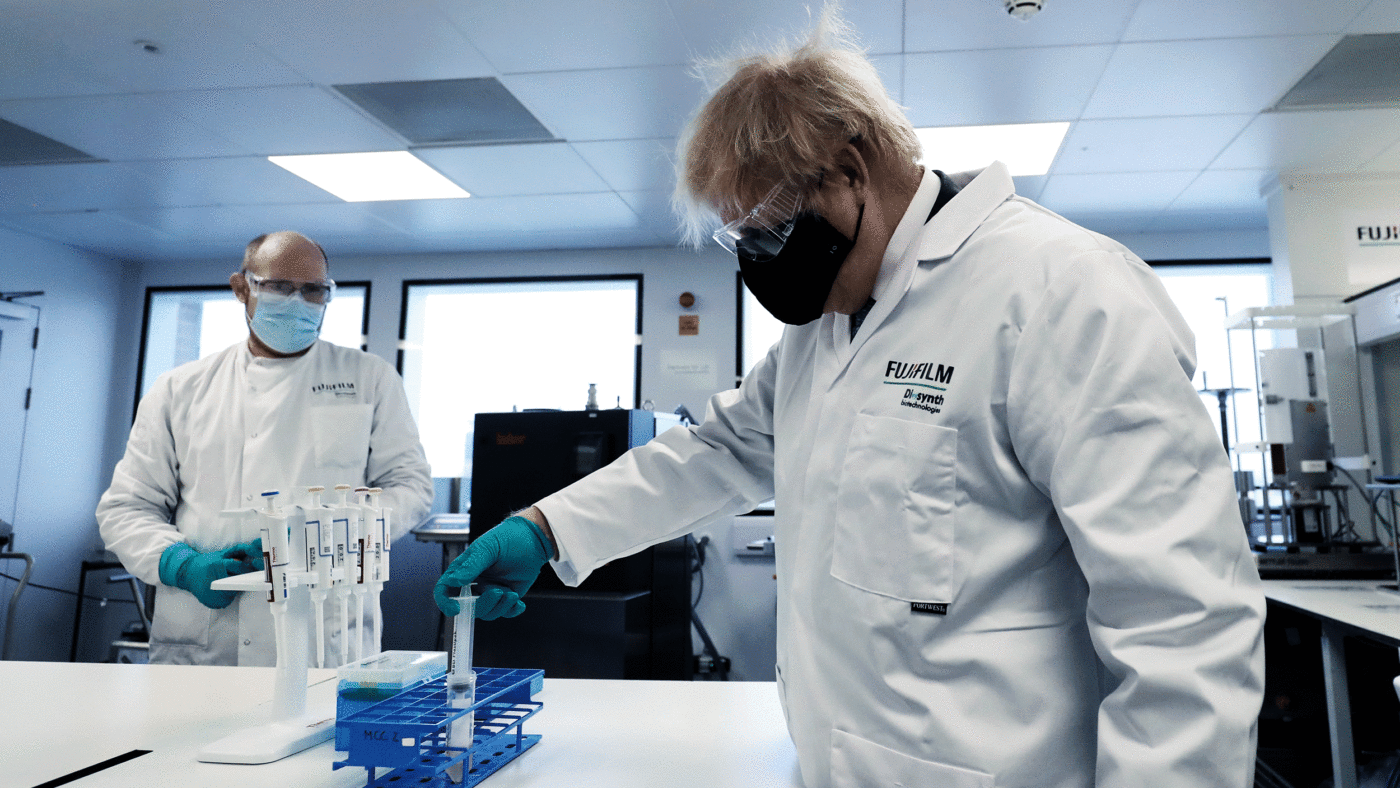A terrible disease is stalking Britain. No, not that one, but what some call ‘Treasury Brain’ – an inability to see any benefits from assets on the government balance sheet, while being petrified of any ‘wasteful’ spending. The patient becomes obsessed with the national debt, but blind to growing the economy to help deal with it. He can only see cutting spending and flogging public assets. Unfortunately, Treasury Brain seems to have infected those responsible for what should be a jewel in the state’s crown – the Vaccine Manufacture and Innovation Centre (VMIC).
Unveiled in 2018 as a crucial part of the UK’s response to future pandemics, VMIC is now reportedly up for sale. It cost a grand total of £215 million, which is roughly two hours worth of what the Government spent in 2019/20. According to the FT, the Government is claiming that, ‘Things are tight and so they are looking forward to recoup some of that cost’. Given the cost of the pandemic is over £370 billion so far, it’s not at all clear why we would be in such a hurry to offload an asset which did much to accelerate the development of the AstraZeneca vaccine.
One might have thought the state would see the value of having its own manufacturing facility ready to produce the very vaccines which have helped the UK to be the freest country in Europe since June. Many poorer countries around the world are still, sadly, at very low rates of vaccination, and if anyone has to manufacture vaccines at a loss the state is best placed to do this – perhaps paid for by the foreign aid budget.
When the UK’s supplies of vaccines were threatened in January by the EU, one might have thought it showed that domestic manufacturing of critical assets might actually be quite useful. There is no guarantee that in 20 years time Astrazeneca, Valneva or Novavax will be in business, never mind still operating in the UK. When variants arose repeatedly throughout 2021, they demonstrated yet another reason why more manufacturing capability is good. In the worst but unlikely case, if Omicron does escape current vaccines, we will need to re-vaccinate everyone, but with our current supply that could take six months. The ability to manufacture tens of millions of vaccines is potentially worth far more than the relatively modest sum we would gain from selling off VMIC.
The Government’s argument that private supply has rendered the VMIC irrelevant has some merit, but only as far as Covid is concerned. Privatisation almost always does lead to better services and outcomes, but there are some capabilities which are probably better off being owned by the state, even if it comes at a higher cost. Beyond the pandemic, vaccines will remain a crucial weapon in the fight against both new and existing diseases. Access to a state of the art vaccine manufacturer which can be tasked to deliver for the UK above any other potential customer is demonstrably beneficial.
The Government controls strategic interests in different industries, such as specialised steel production, for a good reason; in the worst case scenario, when no one will sell to you you have a minimum viable base on which to build. The VMIC could be far more than that, but at a minimum currently represents a useful part of a long-term disease mitigation strategy.
The whole point of the original funding of VMIC was that it would help deal with future new diseases and variants, some of which pharmaceutical companies would not have been able to find a commercial case for developing. Despite calls for increased funding, VMIC is unfortunately not at a stage to be of any potential use with Omicron. But there may be other variants, and just because there has been one very large pandemic does not mean we are safe from new diseases arising in the future.
How the Government financially deals with a genuine disease-busting vaccine factory in the middle of a pandemic therefore unfortunately tells us a great deal about the spread and virulence of Treasury Brain. Although this is a stark example of how very short-termist and unfocused thinking doesn’t add up when dealing with the reality of the world beyond Westminster, it inevitably won’t be the last. The Government can still reverse its plan to sell off its world class asset, and start to inoculate itself against its own worst tendencies.
Click here to subscribe to our daily briefing – the best pieces from CapX and across the web.
CapX depends on the generosity of its readers. If you value what we do, please consider making a donation.


